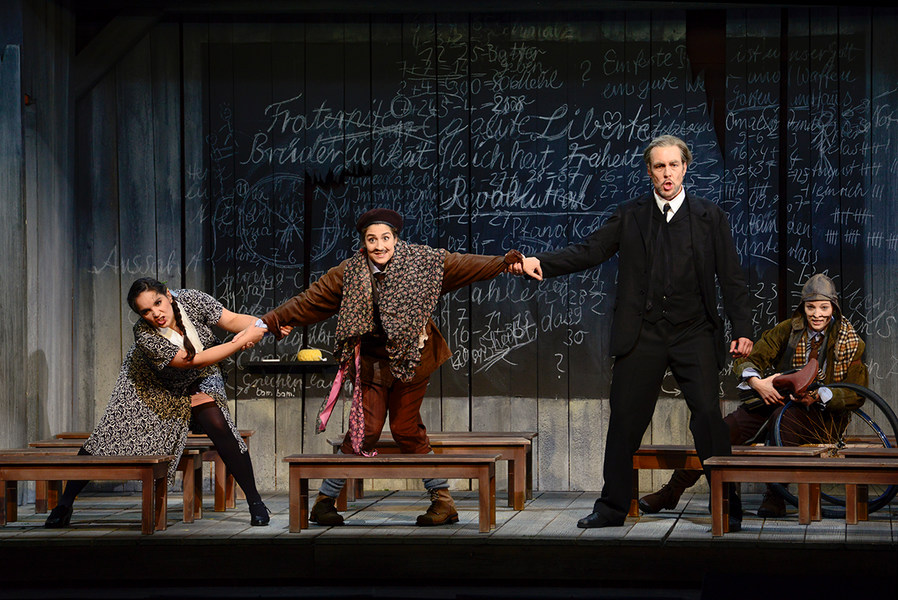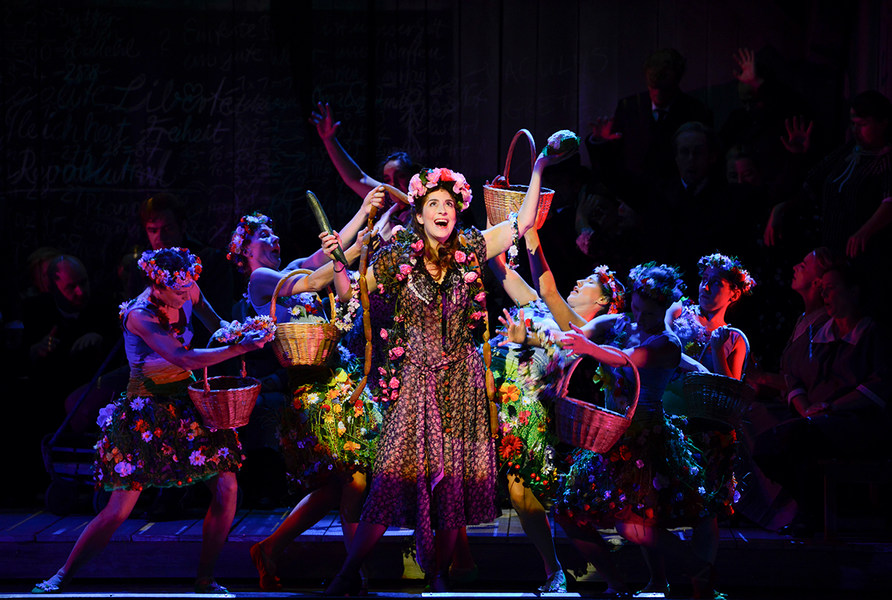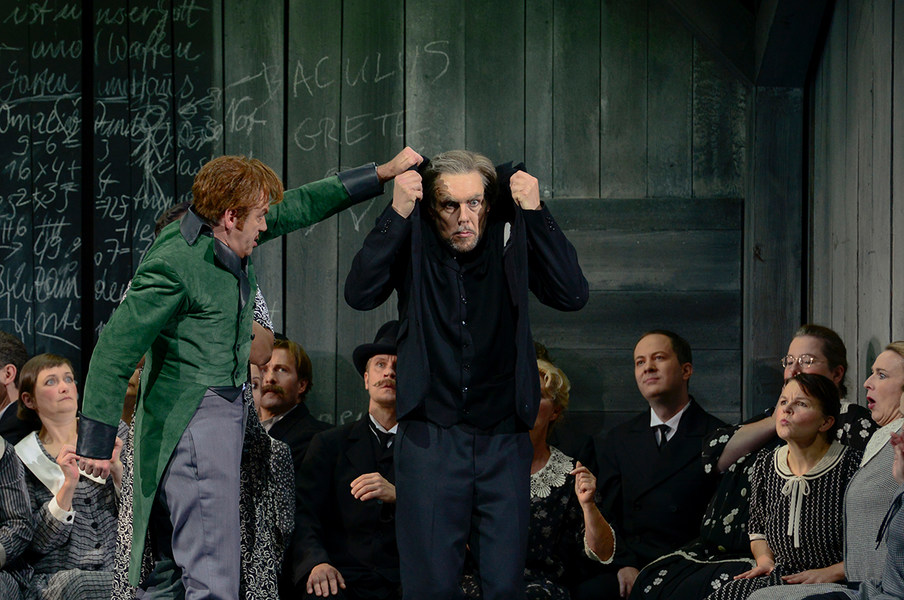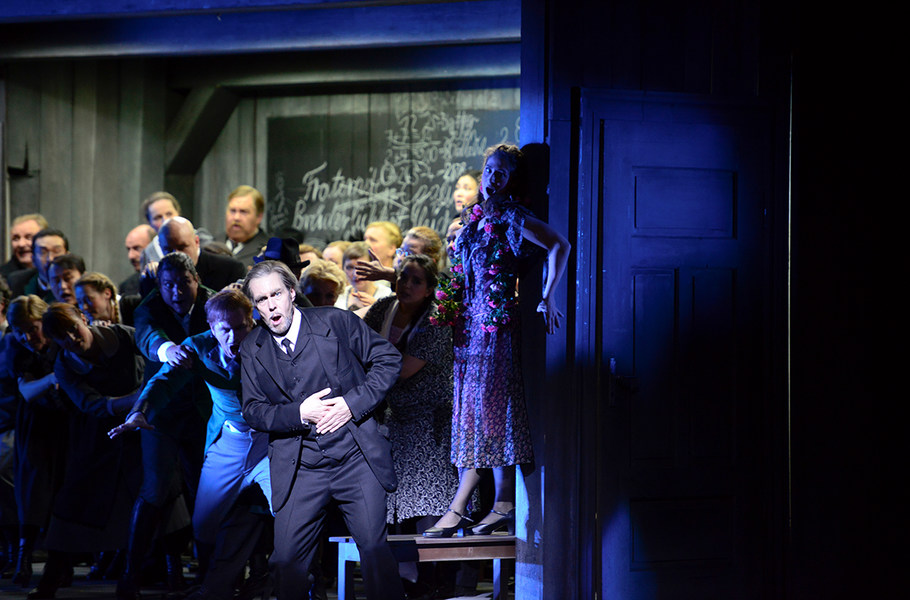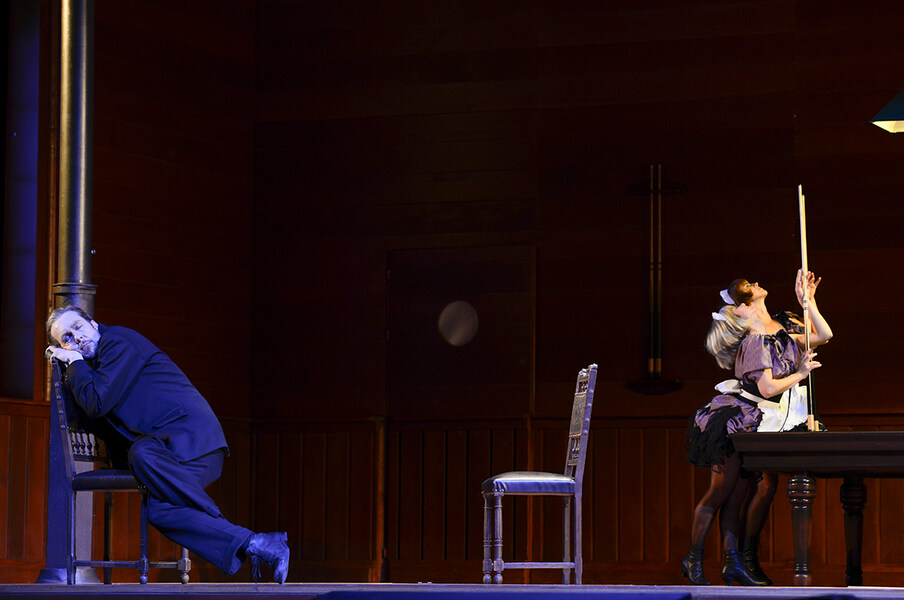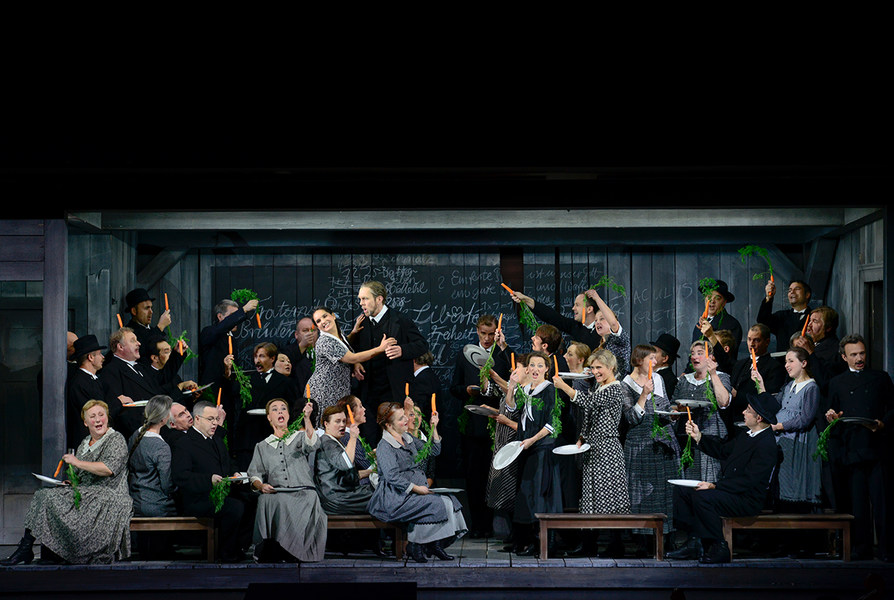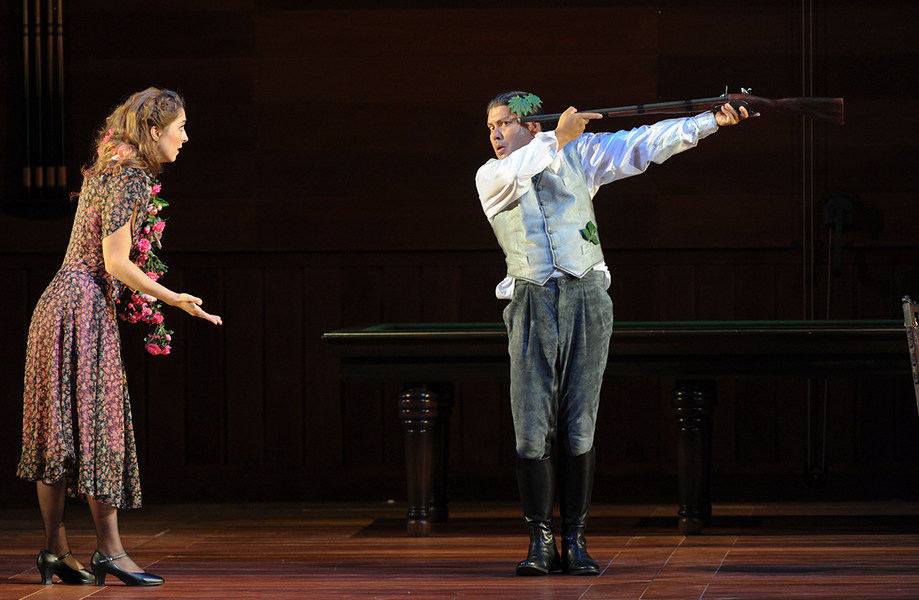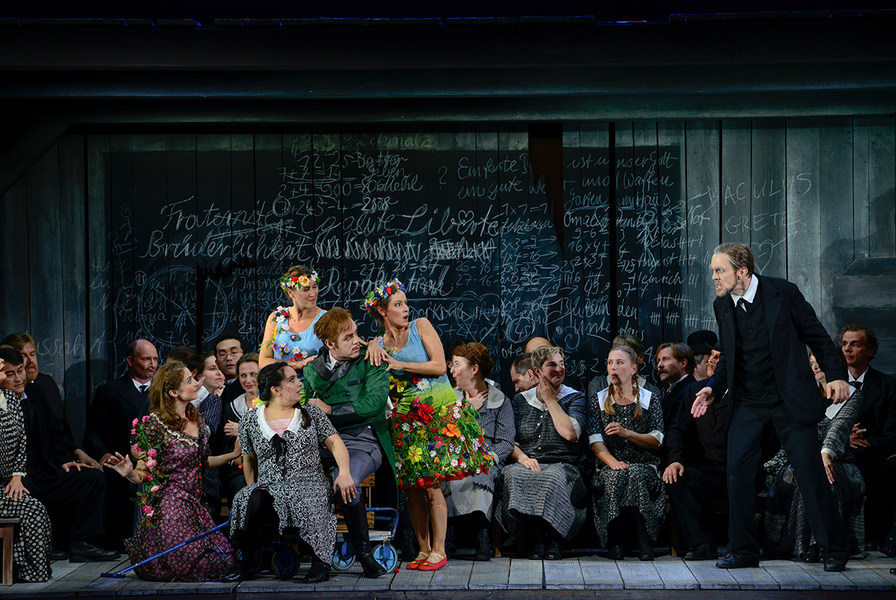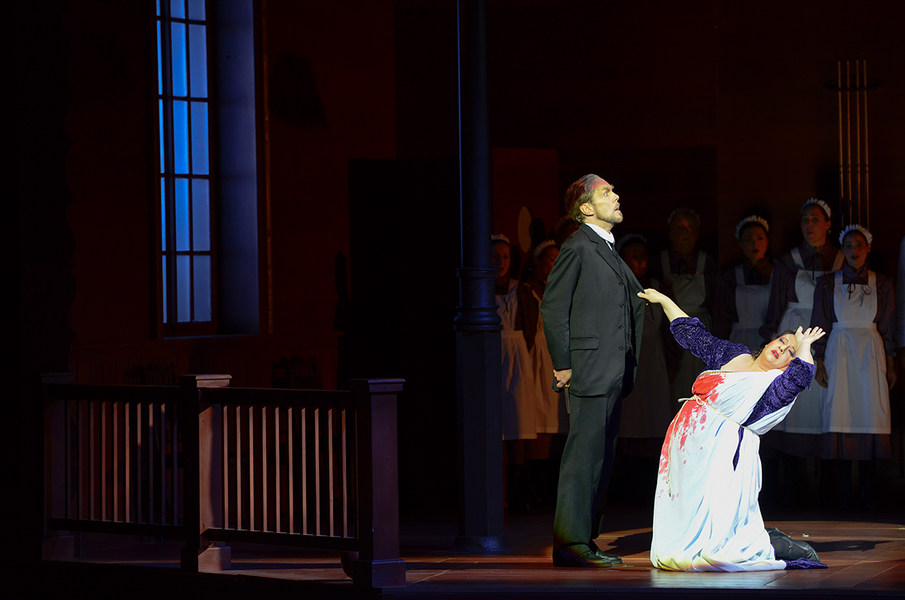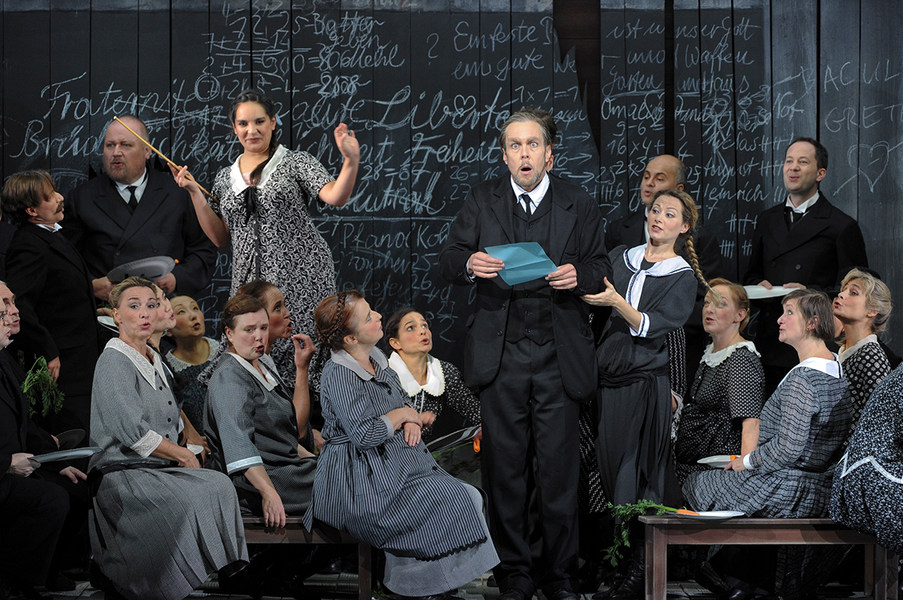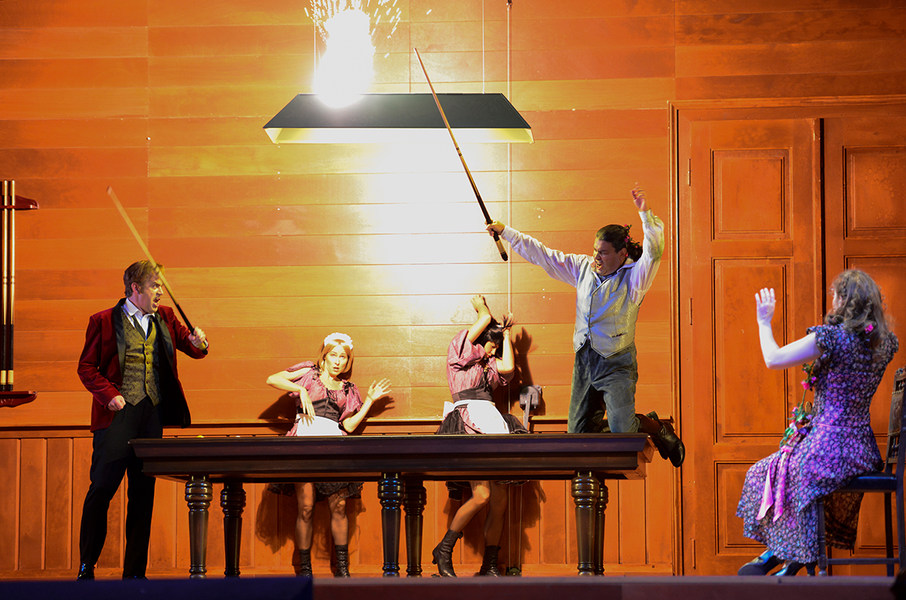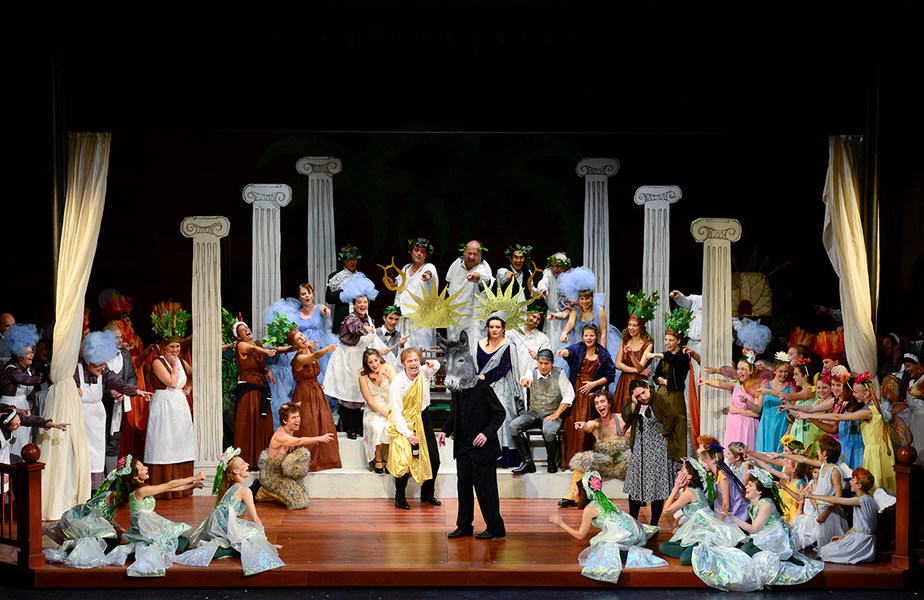Stücktrailer
The Poacher
The engagement of Baculus, the elderly village schoolteacher, to his young but cunning ward Gretchen, is to be crowned with a meal of roast venison. But the poaching trip to the count’s park almost costs Baculus his job and his bride. Gretchen’s offer to plead his case in front of the count doesn’t seem appropriate in view of the latter’s notorious lechery. Rescue comes in the form of a student who is willing to visit the count disguised as Baculus’s bride. However, the young student is in fact the count’s widowed sister. All this is just the beginning of this comic tale of hidden identities. Under the guise of an amusing farce, Albert Lortzing’s Wildschütz from 1842 is actually a caustic and trenchant social satire, the climax of which comes when Baculus agrees to sell his Gretchen to the Baron for 5,000 thalers, singing And now all at once – a capitalist! In Jens-Daniel Herzog’s acclaimed production, the on-stage antics are infused with merry wit as well as the requisite seriousness needed to make the nonsense blossom.
